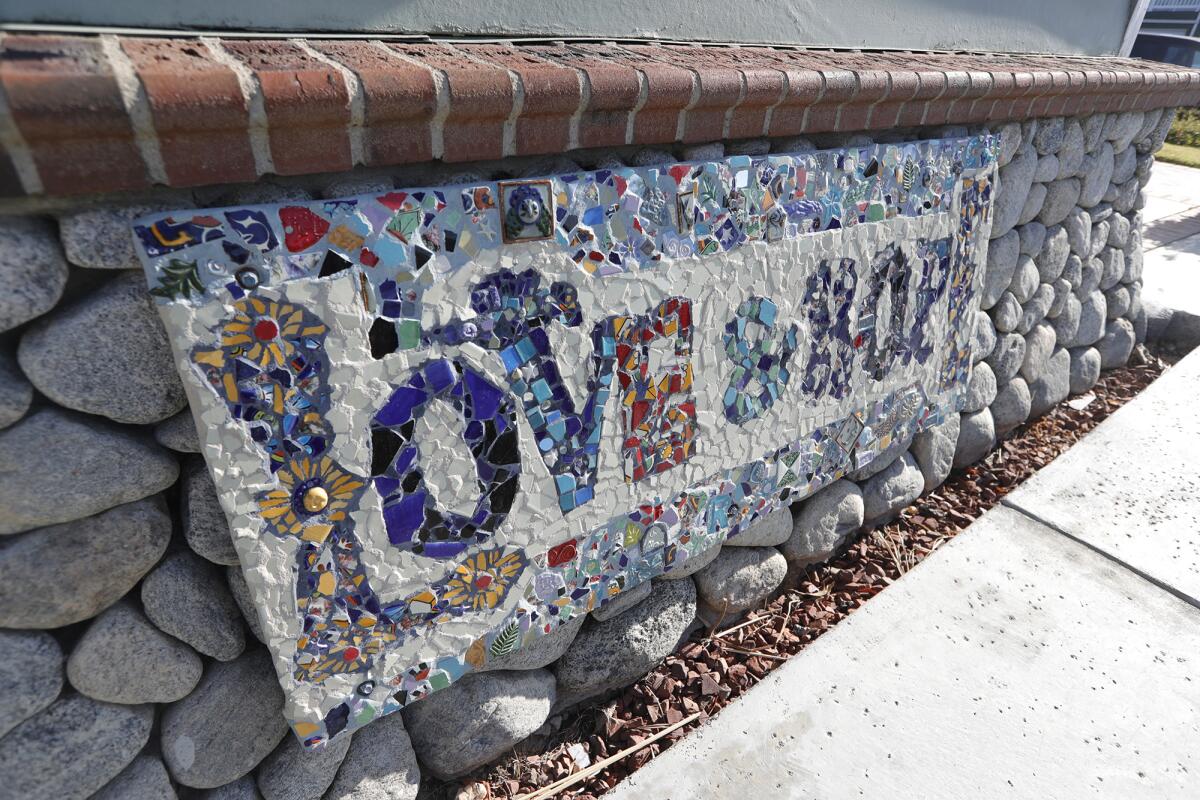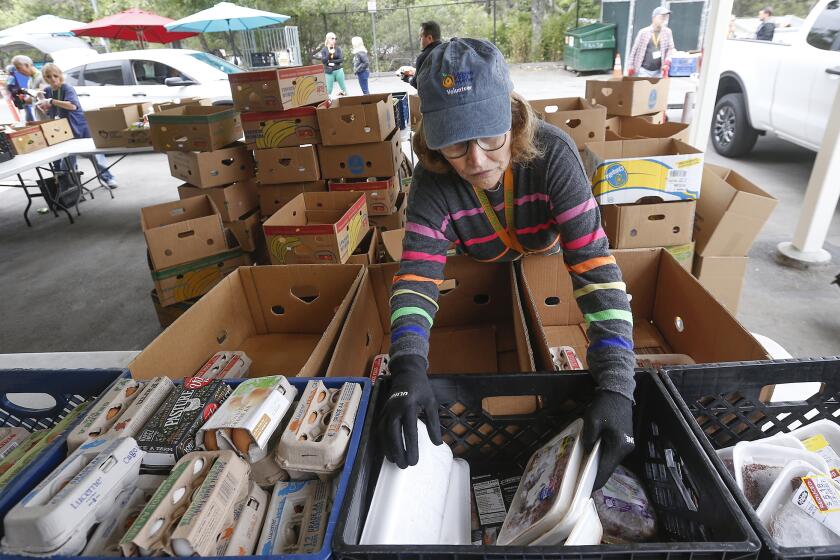‘Trauma-informed’ approach improved support for O.C. survivors of human trafficking, but more funding needed

- Share via
Law enforcement and groups who aid survivors of human sex trafficking made progress over the past decade by working together and adopting a “trauma-informed” approach, but the network of support to help trafficked women, men and children rebuild their lives in Orange County needs more funding and development.
That’s according to a report published by the Orange County Grand Jury Tuesday. It noted that between 2019 and 2020 just two nonprofit groups, Waymakers and the Salvation Army, helped 357 people who had been trafficked in Orange County. About 10% were labor trafficking victims, 88% were sex trafficking victims and 2% were both.
“Orange County is a high-demand area for sex trafficking due to its large population, affluence, thriving tourism, and convention industries,” the grand jury wrote. “These conditions make Orange County fertile grounds for human sex trafficking.”
Authorities used to tackle the issue by simply punishing both traffickers and the people they have coerced into the sex trade for breaking the law, according to the report. But a shift took place after the formation of the Orange County Human Trafficking Task Force in 2004, a multiagency organization that works closely with groups like Waymakers.
“Providing a trauma-informed response means that along with survivors taking the lead, I as a service provider am well aware that it is very likely that the victim I am providing services to comes with a history of trauma, abuse as well as being a part of imbalanced relationships, relationships where they were likely exploited or harmed in some way or another often by no fault of their own,” said Michelle Heater, Waymakers’ director of victim assistance programs, during an interview Thursday.
Roughly half of Orange County households with children under 6 aren’t paid enough to cover the average cost of basic necessities, according to a study by United Way.
Building partnerships with a diverse collection of groups focused on the same goal helped local law enforcement shift to a position that viewed those being sold for sex as victims of crimes. Working together with nonprofits also made it easier to connect people with resources to help them find shelter, work and other forms of support in order to hopefully find a fresh start.
The changes agencies have made over the past decade have had measurable results, Heater said. Their records show that more survivors who connect with aid programs commit to them for longer periods of time, instead of returning to the people who abused them.
However, leaving the sex trade means survivors often have to rebuild their lives from scratch, which often involves figuring out how to obtain shelter, employment and other necessities in what may be an entirely new environment. Meanwhile, funding for programs to help them start over are spread thin and aren’t compulsory. Those may largely be the reasons why the majority of trafficked adults who are referred to groups like Waymakers still return to their prior lifestyle.
The matter is complicated by the fact that many support programs will not readmit survivors who have dropped out, Heater said. That means that some of those who are at the greatest risk of being victimized may have the greatest difficulty in getting help.
“The issues faced by the people who become victims of this crime are incredibly complex, and they come with complex histories,” Heater said. “And therefore, the ways in which we are able to effectively engage survivors of human trafficking and child sexual exploitation in programming that could potentially help them along their healing journey go from a place of being in crisis to a place of stability and, hopefully thriving in the future, is incredibly difficult.”
The grand jury’s report also noted that there was room for organizations to improve the way they monitor the long-term progress of survivors, and recommended the creation of a shared database for support agencies. They also acknowledged that more attention needs to be paid to those who purchase sex, noting that current laws typically result in a “slap on the wrist” for patrons of human trafficking.
All the latest on Orange County from Orange County.
Get our free TimesOC newsletter.
You may occasionally receive promotional content from the Daily Pilot.





